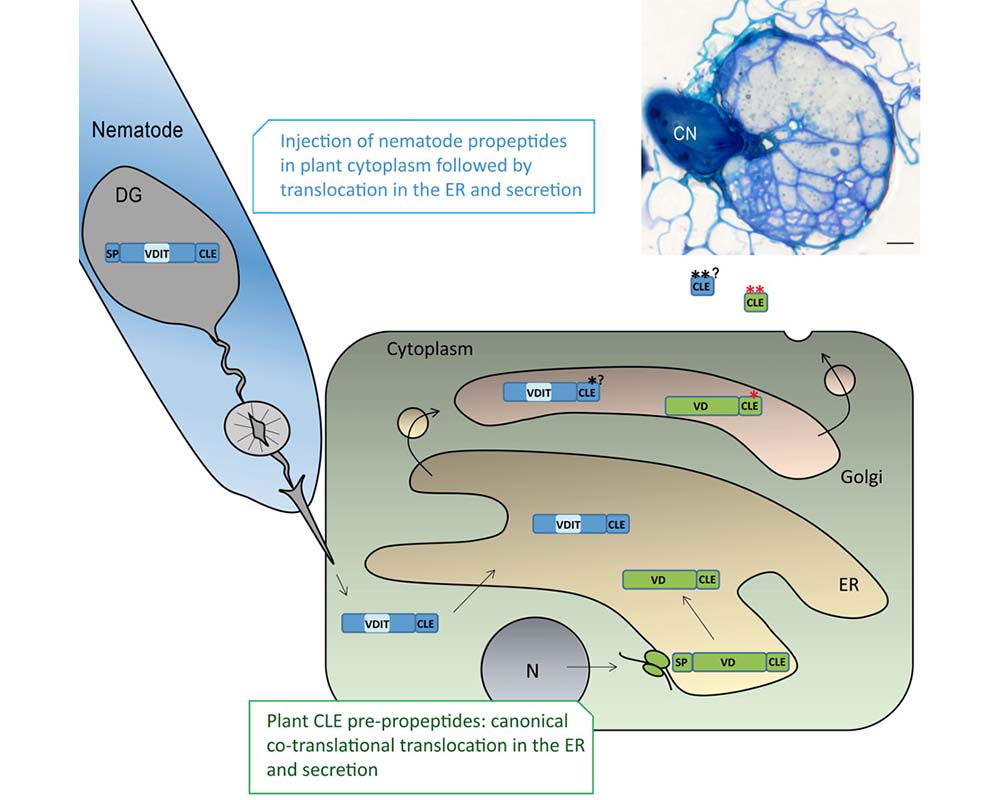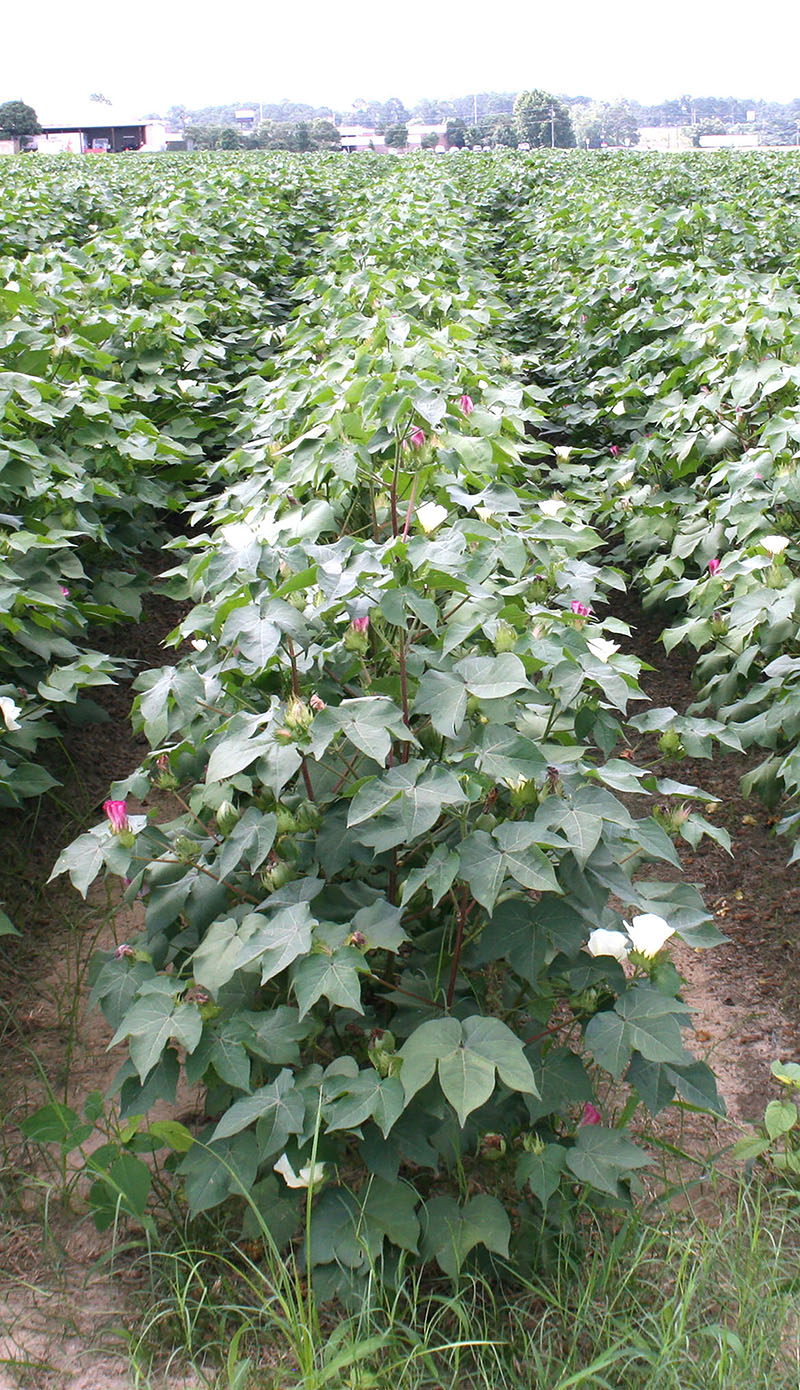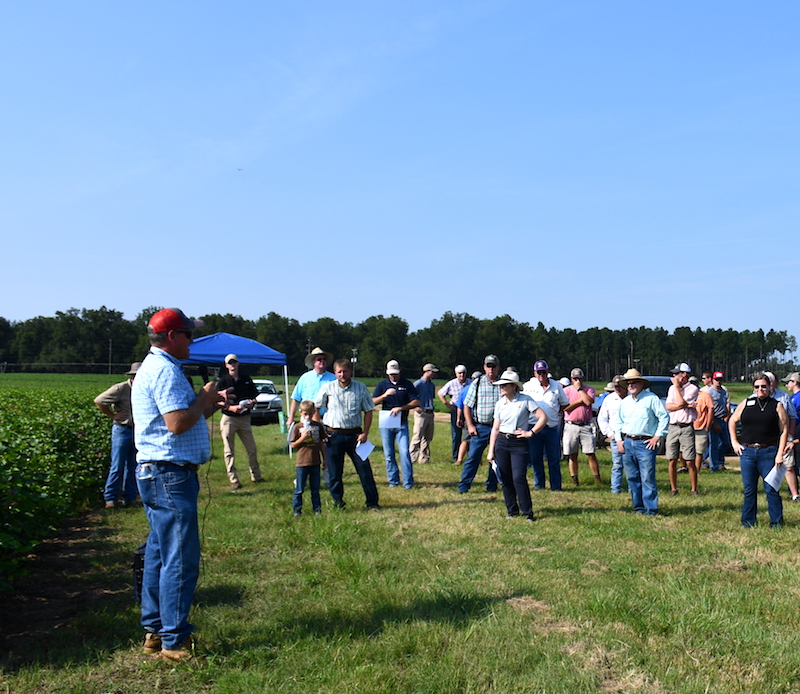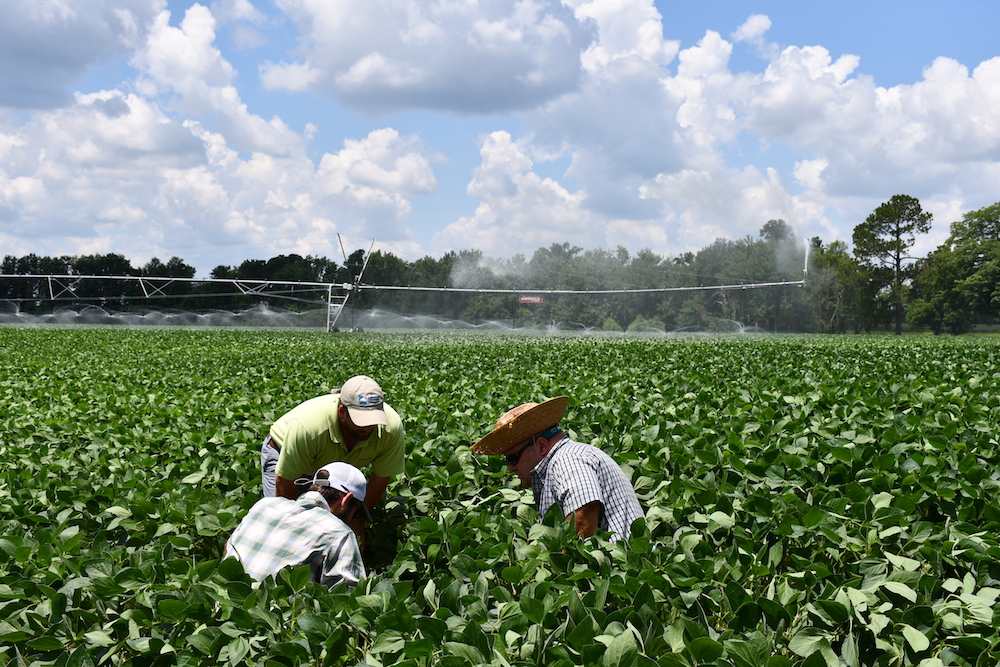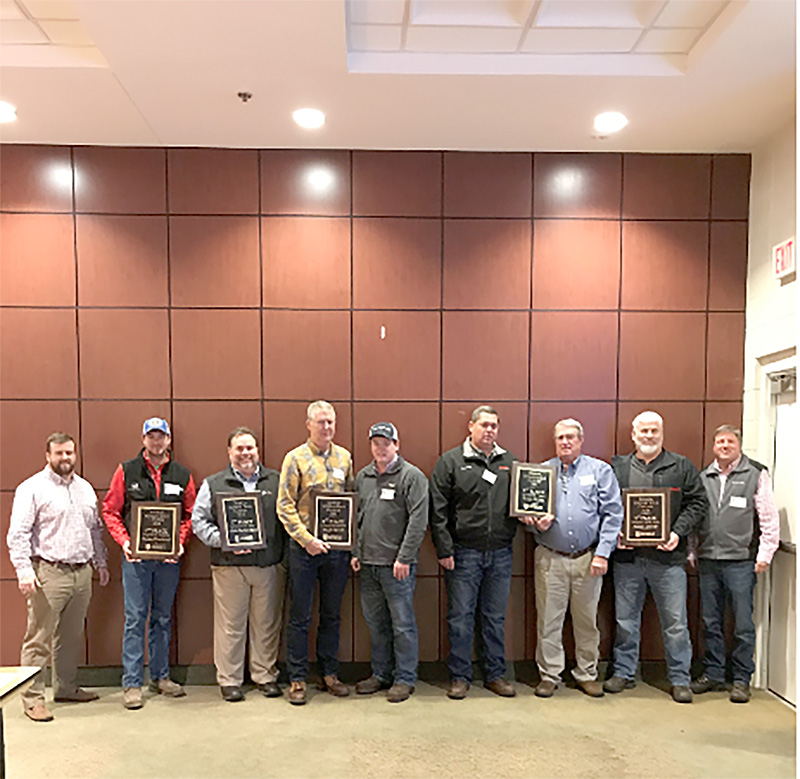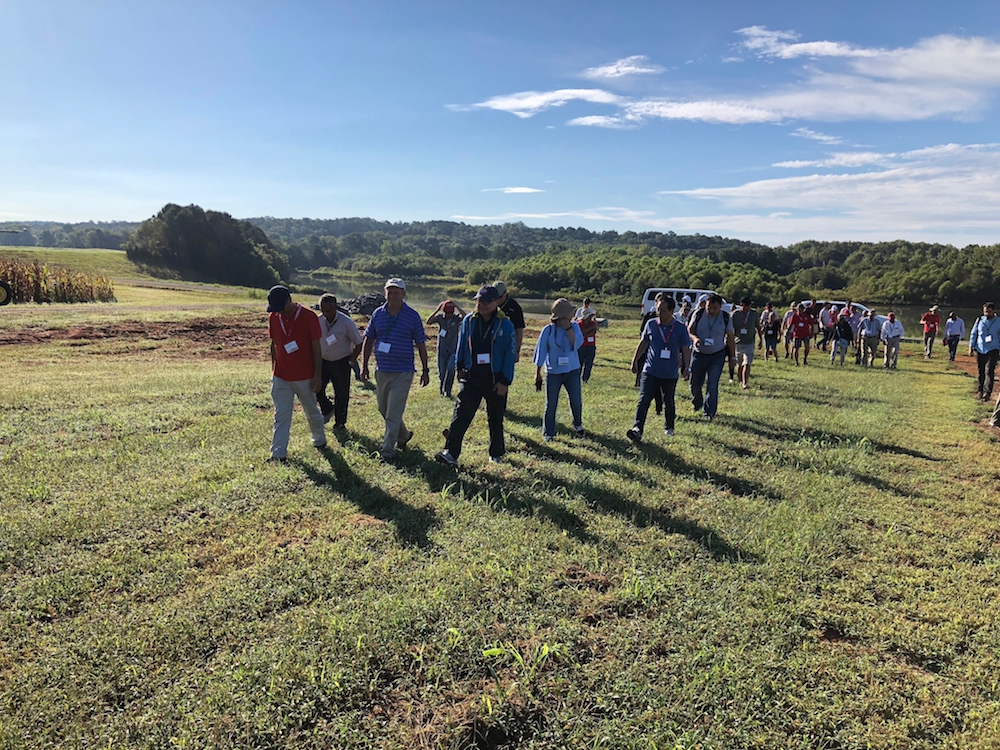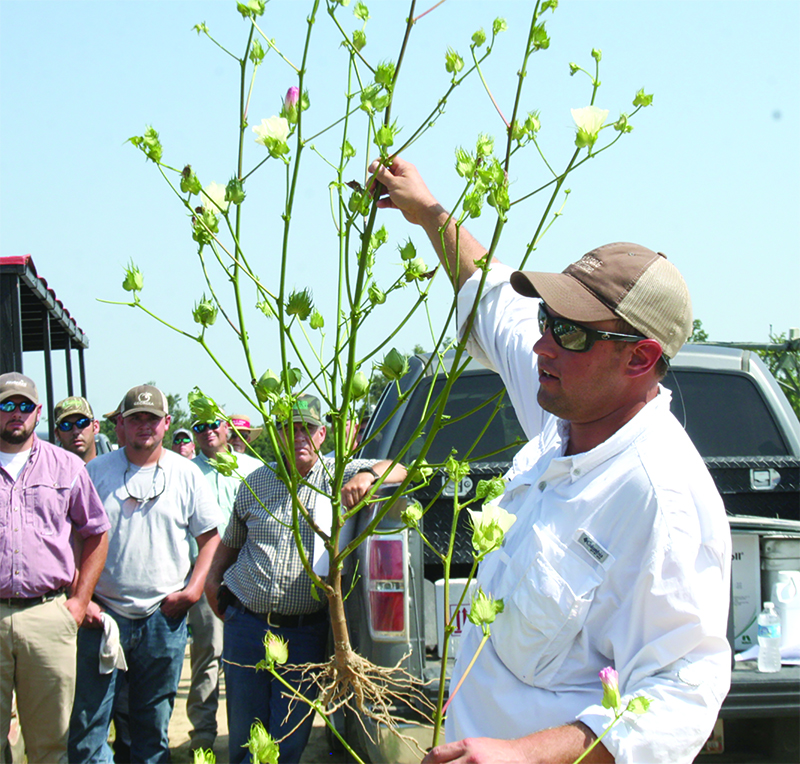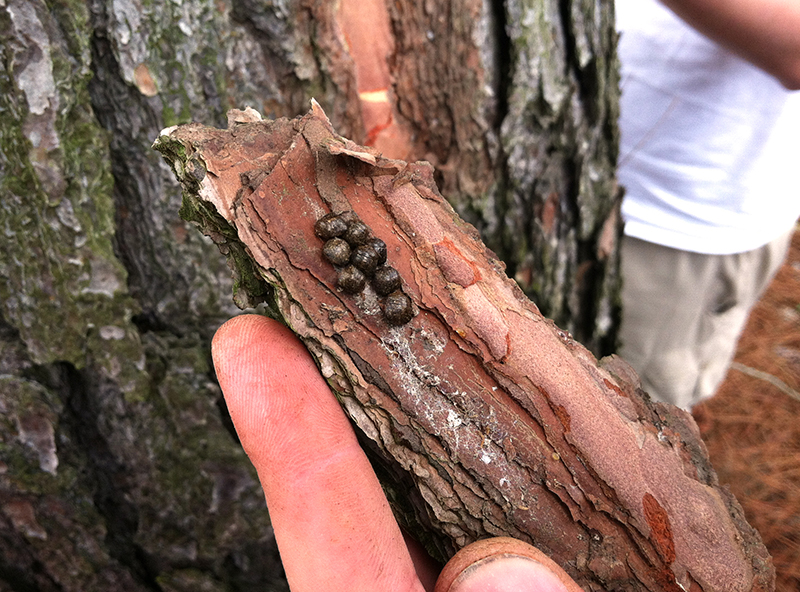.png) CAES News
CAES News
SCN Resistant Cultivars
Plant-parasitic nematodes cause billions of dollars in annual yield losses and represent a major impediment to meeting the challenge of feeding an ever-growing global population. One plant-parasitic nematode, the soybean cyst nematode, has been a long-standing focus of research and innovation in the Melissa G. Mitchum Lab at the University of Georgia College of Agricultural and Environmental Sciences.

